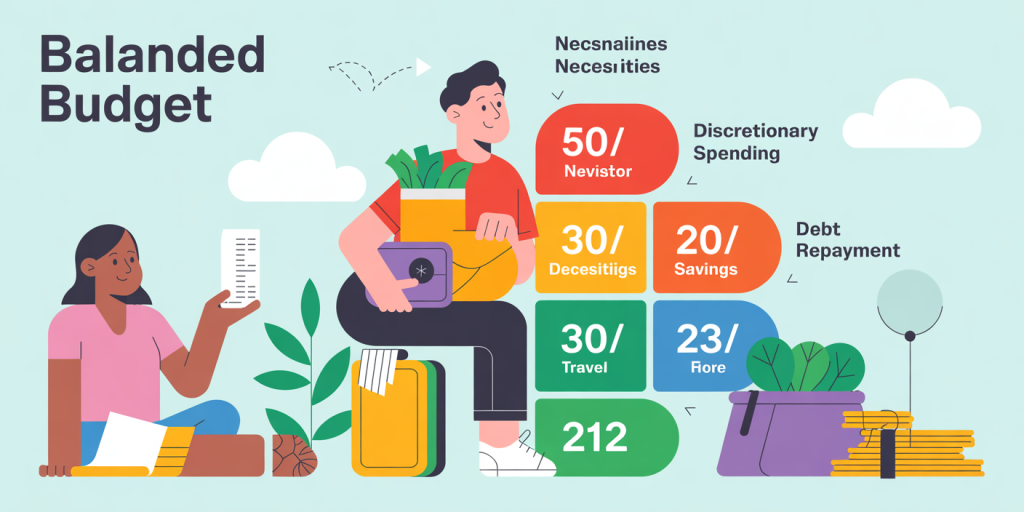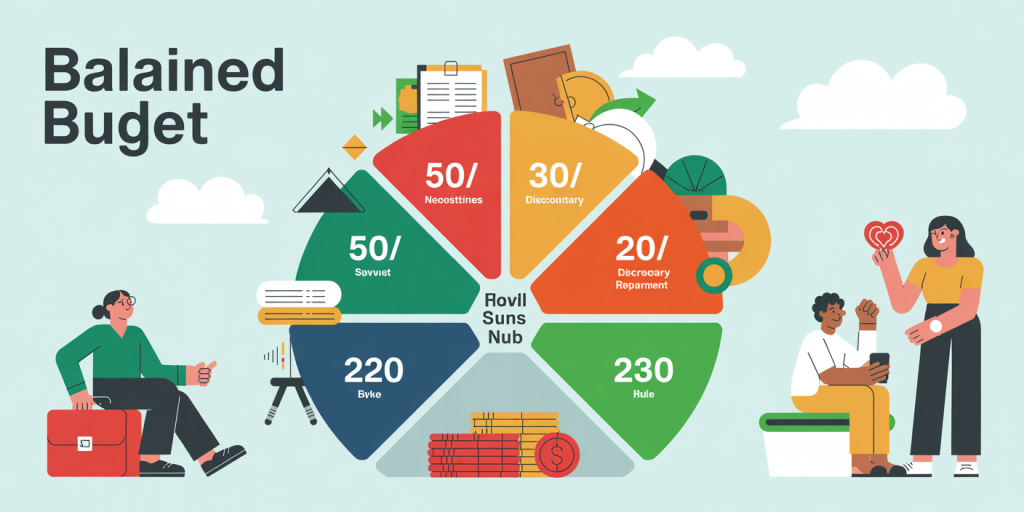How to Live Below Your Means Without Feeling Deprived
In modern society, financial stability is a cornerstone to long-term success and peace of mind. However, the rising cost of living combined with societal pressure to maintain a particular lifestyle often makes living below one’s means seem challenging or even uncomfortable. Living below your means means spending less than you earn, saving money, and avoiding unnecessary debt. Despite common assumptions, this does not necessarily equate to a joyless or restricted life. There are plenty of strategies that allow you to maintain a fulfilling lifestyle while managing your finances prudently.
This article explores practical strategies, backed by real-life examples and statistical insights, to help you live below your means without feeling deprived. By adopting mindful habits, prioritizing spending, and leveraging psychological approaches, anyone can enjoy financial freedom and a rich life experience.
Understanding the Psychology of Spending and Deprivation
One significant barrier to living below your means is the feeling of deprivation. Psychologically, spending is often tied to instant gratification. The American Psychological Association states that the average impulse purchase is made within 13 seconds, highlighting how emotions drive financial decisions. Living frugally, in contrast, is a deliberate approach that requires delaying gratification, which can feel counterintuitive and uncomfortable at first.
However, research reveals that deprivation is often a mindset rather than a reality. A 2019 study published in the *Journal of Consumer Psychology* found that people who reframed budgeting as a tool for freedom rather than restriction reported higher satisfaction and less emotional distress. For example, instead of focusing on what they give up, mindful spenders focus on the gains—such as saving for a dream vacation or reducing financial anxiety.
To overcome the deprivation mindset, it helps to cultivate gratitude and redefine what “enjoying life” means. People who find joy in low-cost activities and quality experiences, rather than material possessions, often report higher life satisfaction and lower stress levels.
Create a Spending Plan That Reflects Your Values
Living below your means doesn’t mean cutting out all enjoyment; it requires a smart spending strategy aligned with your priorities. Begin by identifying your core values. Some people value travel and experiences, others prioritize family time or education. Clearly defining these priorities helps you allocate resources consciously.

For instance, consider the case of Mark and Sarah, a couple from Chicago, who audited their monthly spending and found they were overspending on dining out by 30%. By deciding that travel was more important to them, they redirected those funds toward a vacation fund. This not only allowed them to enjoy trips they ranked highly but also reduced their overall expenses substantially.
A practical budgeting method that supports this mindset is the 50/30/20 rule. This rule suggests allocating 50% of your income to necessities, 30% to discretionary spending, and 20% to savings and debt repayment. What’s crucial is adjusting or personalizing these percentages based on your goals. For example, if you want to accelerate debt repayment, you might reduce discretionary spending to 15%, reallocating the surplus.

| Budget Category | Standard Allocation | Adjusted Allocation (Debt Repayment Focus) |
|---|---|---|
| Necessities | 50% | 50% |
| Discretionary Spending | 30% | 15% |
| Savings/Debt Repayment | 20% | 35% |
The key is not rigidly following predefined ratios but crafting a plan that aligns spending with what truly matters, reducing impulse splurges and regretful purchases.
Adopt Smart Spending Habits and Mindful Consumption
Often, people feel deprived because they see budgeting as a restrictive process focused solely on cutting costs. Instead, adopting smart spending habits can elevate your lifestyle without increasing expenses. Mindful consumption emphasizes quality over quantity, encouraging thoughtful purchases that add real value.
For example, consider Anna, a New York resident who reduced her clothing budget by half. Instead of frequent fast-fashion purchases, she invested in fewer pieces of high-quality clothing that lasted longer and felt better. This shift not only saved money but also gave her greater satisfaction with her wardrobe.
Another strategy is to apply the 24-hour rule for impulse purchases. This involves waiting 24 hours before buying non-essential items, which often curbs unnecessary spending driven by fleeting desires. According to a survey by Credit Karma, 60% of people admitted that waiting before a purchase would have prevented them from wasting money.
Furthermore, bundling purchases, subscribing to membership programs, or buying in bulk for essential items can reduce costs while maintaining convenience. For example, subscribing to grocery delivery services with discounts can lower shopping costs and reduce impulsive buys.
Maximize Free and Low-Cost Enjoyment
One common misconception is that living below your means requires sacrificing fun. The truth is many activities offer immense joy without high price tags. Leveraging community resources and adopting hobby choices scaled to your budget can maintain happiness and social connections without financial strain.
Public parks, local museums, community workshops, and free fitness classes often provide rich, fulfilling experiences. Cities like Austin and Portland report higher resident satisfaction partly due to the accessibility of low-cost cultural activities.
A comparative table below shows the yearly cost difference between common leisure activities:
| Activity | Estimated Annual Cost (USD) | Free/Low-Cost Alternatives | Approximately Saved (USD) |
|---|---|---|---|
| Gym Membership | $600 | Outdoor running & body-weight workouts | $600 |
| Movie Theaters | $300 | Film festivals and library DVD rentals | $250 |
| Dining Out | $1200 | Hosting potlucks and home cooking | $700+ |
| Concerts/Festivals | $500 | Attending free local events | $500 |
By intentionally seeking low-cost or free alternatives, individuals can significantly reduce expenditures without compromising lifestyle quality. More importantly, these choices often foster a sense of community and personal development, aspects sometimes neglected in expensive lifestyle pursuits.
Build an Emergency Fund and Long-Term Savings for Security
Feeling deprived is often connected to anxiety about future uncertainties. One critical step towards comfort in frugal living is establishing a robust emergency fund and contributing consistently to long-term savings. According to a 2023 report by the Federal Reserve, nearly 40% of Americans would struggle to cover an unexpected $400 expense.
Having a financial safety net creates peace of mind, which mitigates the stress associated with strict budgeting. Start by setting aside three to six months’ worth of living expenses in a readily accessible account. This fund serves as a buffer against sudden job loss, medical expenses, or urgent repairs.
Real-life examples show that people with solid emergency funds feel more confident making intentional financial choices. Take James, a software developer from Seattle, who prioritized building a $15,000 emergency fund before reducing any unnecessary spending. With this cushion, he reported feeling less deprived and more empowered to control his finances.
After securing the emergency fund, concentrate on retirement and investment accounts. Compound interest and consistent contributions create wealth over time, providing further financial freedom.
How Technology and Automation Simplify Living Below Your Means
Modern technology can be a game changer in adhering to a below-the-means lifestyle without feeling deprived. Budgeting apps, automation tools, and financial tracking software allow people to monitor their money effortlessly.

Apps like Mint and YNAB (You Need A Budget) categorize spending and provide visual reports that make uncovering wasteful habits intuitive. Automation tools that transfer a fixed amount to savings on payday prevent missed opportunities to save and remove temptation for impulse spending.
Consider Brenda, a college graduate who automated 20% of her earnings to her savings account and used apps to track subscriptions she no longer used. Within a year, she had built a solid emergency fund and reduced expenses by over 15%, all without feeling deprived or stressed.
Aside from budgeting, technology enables access to cash-back programs, price comparison websites, and digital coupons, all contributing to smarter spending.
Future Perspectives: Sustainable Financial Freedom and Lifestyle Design
The concept of living below your means is increasingly important as economic uncertainty and cost of living rises globally. Financial experts emphasize that the goal is sustainable financial freedom—meaning you can maintain a lifestyle that supports your values without constant stress about money.
Future trends suggest more individuals will adopt minimalist lifestyles, prioritize experiences over possessions, and leverage digital tools for financial management. According to a 2023 Nielsen report, 72% of millennials express interest in minimalist or intentional living, highlighting a generational shift toward mindful money use.
Additionally, societal emphasis on mental health is reshaping how people perceive financial well-being. Financial literacy programs are integrating emotional intelligence components to help individuals manage spending guilt and deprivation tendencies.
Incorporating flexible, values-first budgeting together with technology and a goal-oriented mindset will become the blueprint for thriving financially while living below one’s means. Ultimately, this pathway not only ensures financial resilience but enhances overall life satisfaction without sacrificing enjoyment.
—
Living below your means is not about restriction but about empowerment. By understanding your spending psychology, prioritizing values, adopting mindful habits, and leveraging modern tools, it is possible to maintain a lifestyle full of joy and security. This holistic approach promises not only immediate savings but long-term peace of mind and happiness.
